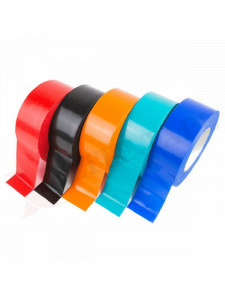Understanding Insulation Tape Prices What You Need to Know
Insulation tape, also known as electrical tape, is a crucial component in various industries, particularly in electrical work and DIY projects. Its primary function is to insulate electrical wires and connections, ensuring safety and preventing short circuits. The price of insulation tape can vary widely based on several factors, including the material, brand, thickness, and purpose. In this article, we will delve into the factors influencing insulation tape prices and provide insights for buyers.
Types of Insulation Tape
Before we examine pricing, it’s important to understand the different types of insulation tape available in the market
1. PVC Insulation Tape This is the most commonly used type. It is made from polyvinyl chloride and is favored for its elasticity, chemical resistance, and ability to adhere well to itself and other materials. PVC insulation tape typically ranges from $0.50 to $3.00 per roll, depending on the brand and width.
2. Vinyl Insulation Tape Often confused with PVC tape, vinyl insulation tape has similar properties but is generally more flexible and durable. Prices can vary from $1.00 to $5.00, especially if it comes in thicker rolls or has added features.
3. Rubber Insulation Tape This tape is designed for high-temperature applications and provides excellent electrical insulation. It is often used in automotive and aerospace applications. Due to its specialized nature, rubber insulation tape can be more expensive, ranging from $2.00 to $10.00 or more per roll.
4. Cloth Insulation Tape Ideal for bundling cables and providing additional protection, cloth tape is often used in audio and video applications. The price typically ranges from $2.00 to $8.00 based on the thickness and adhesive quality.
5. Specialty Tapes These include high-temperature tapes, self-fusing tapes, and other innovative options. Prices for these specialty products can vary significantly, often starting at $5.00 and going upwards of $20.00 depending on the application.
Factors Influencing Prices
1. Material Quality The quality of the material used in manufacturing insulation tape greatly impacts its price. Higher quality materials, such as premium PVC or enhanced rubber, generally lead to higher costs.
insulation tape price

2. Brand Reputation Established brands often command higher prices due to their commitment to quality and performance. While it can be tempting to opt for cheaper brands, it is crucial to consider the risk of inferior products that may not meet safety standards.
3. Roll Size and Thickness Larger rolls or thicker tapes tend to be more expensive. Buyers should consider their specific project requirements, as purchasing larger rolls can be more cost-effective in the long run, especially for ongoing projects.
4. Retailer Markup Different retailers may apply varying markups on insulation tape. Shopping around can lead to significant savings, particularly if you are buying in bulk.
Buying Tips
When looking to purchase insulation tape, consider the following tips to ensure you get the best value for your money
- Assess Your Needs Determine the specific requirements for your project. Are you working with high-voltage equipment, or is this for low-voltage home repairs? Knowing this will guide you in choosing the right type of tape.
- Compare Prices Shop across multiple platforms, including local hardware stores and online retailers. Websites like Amazon, Home Depot, and specialized electrical supply sites often have competitive pricing.
- Read Reviews Customer reviews can provide valuable insights into the tape's performance and durability. This can help you avoid brands that may have quality control issues.
- Consider Bulk Purchases If you frequently use insulation tape, consider buying in bulk to save money. Many retailers offer discounts for larger orders.
Conclusion
In conclusion, the price of insulation tape can vary significantly based on several factors, including type, brand, material quality, and roll size. By understanding these aspects and evaluating your specific needs, you can make informed purchasing decisions that ensure both safety and cost-effectiveness. Whether for professional use or DIY projects, always prioritize quality to avoid potential hazards associated with electrical work. Happy shopping!
-
XIANGFAN Rubber Tape-Ultimate Solutions for All Your Insulation NeedsNewsJun.24,2025
-
XIANGFAN Rubber Tape-Protection for Industrial and Residential ApplicationsNewsJun.24,2025
-
XIANGFAN Rubber Tape: Superior Safety and Sealing for Demanding EnvironmentsNewsJun.24,2025
-
XIANGFAN Rubber Tape: Reliable Solutions for Every Electrical ChallengeNewsJun.24,2025
-
XIANGFAN Electrical & Industrial Tape: Powering Reliability Across IndustriesNewsJun.24,2025
-
XIANGFAN Electrical & Industrial Tape: Excellence in Every ApplicationNewsJun.24,2025
